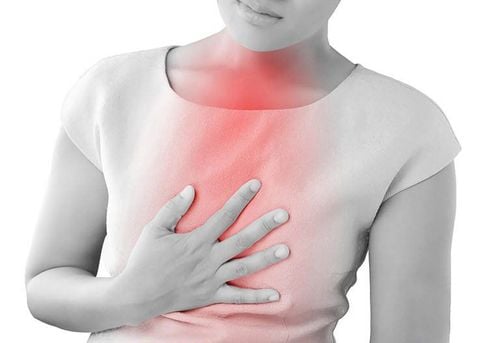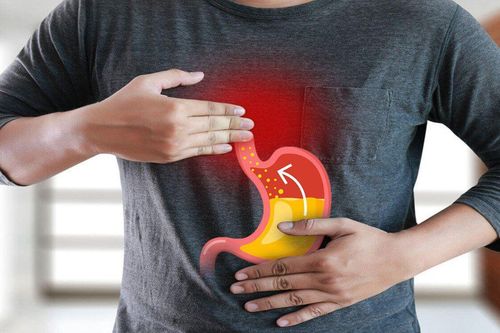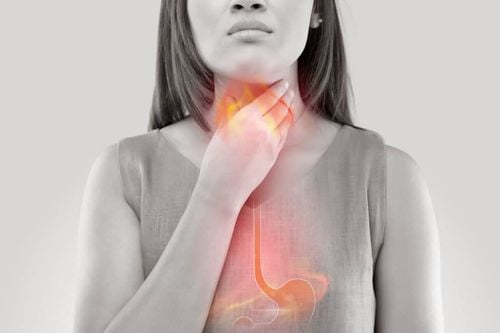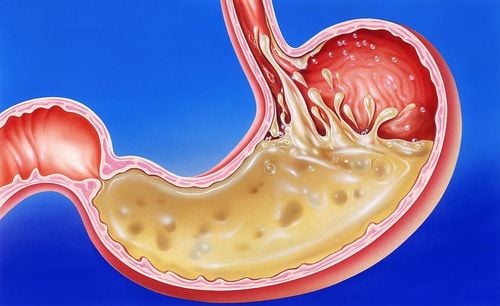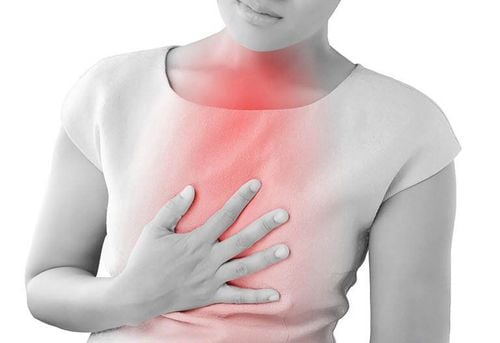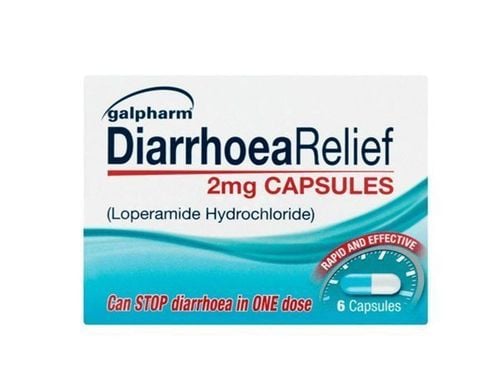This is an automatically translated article.
The article was professionally consulted by Doctor Department of Gastroenterology - Endoscopy, Department of Medical Examination & Internal Medicine - Vinmec Central Park International General Hospital.
Gastroesophageal reflux disease is a common disease with a high recurrence rate and difficult to treat thoroughly. This condition directly affects the patient's health and quality of life.
1. Learn about gastroesophageal reflux
Gastroesophageal reflux (acid reflux) is a condition in which gastric juices from the stomach back up into the esophagus, causing irritation and inflammation.
Symptoms of the disease are:
sour, heartburn, bitter mouth Sore throat, sore throat Chronic cough, hoarseness, inflammation of the vocal cords or edema of the vocal cords Congestion in the neck, a lot of phlegm, burning in the neck, pain chest, pain spreading to the back and arms, ... Gastroesophageal reflux, if not treated promptly, can cause many complications such as: chronic pharyngitis, laryngitis, bronchitis, esophageal ulcers , esophageal strictures , Barrett esophagus , even esophageal cancer . In particular, this is a disease with a high recurrence rate, so definitive treatment is difficult.
2. Why does gastroesophageal reflux disease recur?
2.1 Patients are subjective when the disease is in the early stages
If gastroesophageal reflux is treated early, the esophageal mucosa is easy to recover as normal, the likelihood of recurrence will be low. However, because the early symptoms of the disease are just belching, heartburn - common in normal healthy people (especially after eating or lying down), the disease is often overlooked. Most patients with acid reflux are only treated when the disease has worsened. At this time, the treatment of the disease is very difficult and the disease is easy to recur.
2.2 Symptoms of the disease are easily confused with other diseases

When gastroesophageal reflux is more severe, patients have symptoms such as cough, sore throat, hoarseness, difficulty swallowing, chest pain, ... At this time, many patients misunderstand that they have the disease. respiratory infections such as pharyngitis, laryngitis or heart attack.
The subjective failure to examine or choose the wrong treatment method causes the symptoms of gastroesophageal reflux disease to not improve. And when there is an irritant, gastroesophageal reflux is easy to recur.
2.3 Eating and living in moderation
Recurrent gastroesophageal reflux may be due to the patient's irregular eating and working habits. Specifically:
Eat spicy foods, foods that are too hot or too cold; Eat too late, eat at night; Eating at the wrong time, or skipping meals; Vigorous exercise or lying down immediately after eating; Frequent staying up late; Smoking cigarettes, drinking alcohol, beer, coffee; Frequent anxiety, nervous tension.
2.4 Acid-reducing drugs have no long-term effect
Proton pump inhibitors, H2 antagonists or anti-acids prescribed to patients with gastroesophageal reflux disease (GERD) provide rapid relief of symptoms by blocking gastric acid secretion.
However, the limitation of these drugs is that they only have the effect of reducing gastric acid secretion for a short time, when stopping the drug, if the patient is still active in moderation, the symptoms may reappear. cause gastric reflux.
2.5 Effects of weather
Gastroesophageal reflux disease often recurs in autumn - winter. The reason is that the cold weather reduces the thickness of the mucous layer that protects the mucosa, making the stomach more susceptible to impact and damage. In addition, cold air increases the level of histamine in the blood, increases gastric acid secretion, leading to strong stomach contractions, making people with peptic ulcers prone to recurrent abdominal pain. The condition of belching, heartburn and bloating increases, affecting the patient's life and work.
3. Measures to prevent the risk of gastroesophageal reflux disease recurrence
Go to a health care provider as soon as you have the first warning signs of gastroesophageal reflux such as belching, heartburn, heartburn, difficulty swallowing, ... to promptly detect the disease and treat it effectively; Eat in moderation, divide meals during the day, eat a variety of nutritious ingredients, avoid letting the stomach be too hungry or too full; Limit sour and spicy foods, stay up late or eat late at night, do not lie down or exercise right after eating;

Stay away from tobacco smoke, limit drinking alcohol or coffee; Keep your body warm on cold days; Keep the spirit in a state of comfort, optimism, limit stress; Strengthen exercise, health training to improve resistance, increase the body's adaptability to the change of weather; Use the drug early, exactly as prescribed by the doctor about the dose and duration of use. Gastroesophageal reflux disease is easy to recur but can be completely prevented if the patient is diagnosed early, treated at the root and has a moderate and scientific lifestyle.
Please dial HOTLINE for more information or register for an appointment HERE. Download MyVinmec app to make appointments faster and to manage your bookings easily.




